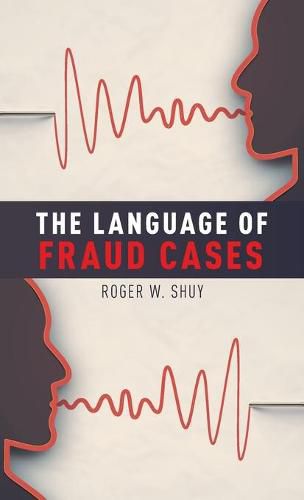Readings Newsletter
Become a Readings Member to make your shopping experience even easier.
Sign in or sign up for free!
You’re not far away from qualifying for FREE standard shipping within Australia
You’ve qualified for FREE standard shipping within Australia
The cart is loading…






In The Language of Fraud Cases, Roger Shuy follows the now well-established format of his previous volumes on language and law. He discusses here eight cases that he himself has consulted on, and that illustrate how linguistics can help to solve the various problems that arise in trying to define fraudulent language in the context of law. He examines speech events, schemas, agendas, speech acts, conversational strategies, as well as smaller language units such as sentences, phrases, words, and sounds, and discusses how these can play a major role in deciding fraud cases. The cases chosen for this volume hinge on recorded language evidence, making them particularly relevant for linguistic analysis, and include cases of government contracts, EPA regulations, foreign corrupt business practices, trade secrets, money laundering, securities trading, art theft, and price fixing. Through his examination of these cases, Shuy demonstrates the significant contribution of linguistic analytical methodology to the understanding of language evidence and its success in revealing willful uses of fraudulent language to achieve financial gain.
$9.00 standard shipping within Australia
FREE standard shipping within Australia for orders over $100.00
Express & International shipping calculated at checkout
In The Language of Fraud Cases, Roger Shuy follows the now well-established format of his previous volumes on language and law. He discusses here eight cases that he himself has consulted on, and that illustrate how linguistics can help to solve the various problems that arise in trying to define fraudulent language in the context of law. He examines speech events, schemas, agendas, speech acts, conversational strategies, as well as smaller language units such as sentences, phrases, words, and sounds, and discusses how these can play a major role in deciding fraud cases. The cases chosen for this volume hinge on recorded language evidence, making them particularly relevant for linguistic analysis, and include cases of government contracts, EPA regulations, foreign corrupt business practices, trade secrets, money laundering, securities trading, art theft, and price fixing. Through his examination of these cases, Shuy demonstrates the significant contribution of linguistic analytical methodology to the understanding of language evidence and its success in revealing willful uses of fraudulent language to achieve financial gain.